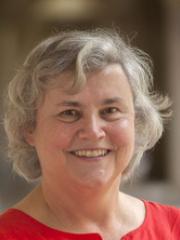Emeritus Professor Gillian Whitehouse

Researcher biography
Professor of Political Science
Background:
Gillian Whitehouse researches in areas of gender and employment equity, focusing in particular on the impact of regulatory frameworks and legislative change on gender equity in contemporary societies. Her research has attracted significant funding from Australian and international agencies (including the Australian Research Council, Government departments in Australia and Britain, the OECD and the European Commission). She is a member of several international networks of researchers in the areas of employment rights and equity, including the International Network on Leave Policies & Research which produces an annual report on parental leave policies in over 30 countries. Her work has been influential within and beyond academic, contributing in particular to pay equity and parental leave policy developments in Australia.
Research Interests:
- Gender Pay Equity: This research spans a considerable period, commencing with cross-nationally comparative analyses of the relationship between institutional frameworks for wage setting and gender equity outcomes and extending to occupational case studies of female-dominated occupations and the resilience of wage gains won through pay equity cases, particularly in times of legislative change. Gillian Whitehouse's work in these areas has informed pay equity inquiries and claims before tribunals at national and state levels in Australia.
- Parental Rights in Employment: This research focuses on the work/family intersection and includes analyses of the use of parental leave in Australia and investigations into the impact of parental leave type and duration on outcomes such as career progression, gendered parenting roles and family well-being. Following on from the design and implementation of Australia's first comprehensive survey on the use and impact of parental leave (which informed a major Productivity Commission inquiry and national policy development), Gillian Whitehouse is currently part of a consortium undertaking an evaluation of Australia's paid parental leave policy.
- Work and Occupations: This research has focused on gender equity and work/family balance for a number of different occupational groups, including academia, professional roles in universities, architecture and - more broadly - science and technology. Aspects of this research have addressed horizontal and vertical patterns of sex segregation within computing work and emerging 'creative' areas such as multimedia, as well as the use of technology in changing the spatial and temporal organisation of work (e.g. via telework). Recent project work includes contribution to the European Commission project Practising Gender Equality in Science which focused on organisational strategies to attract and retain women in leadership positions in science and technology occupations in 20 countries.
